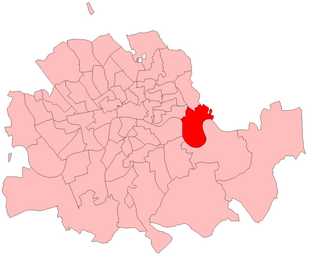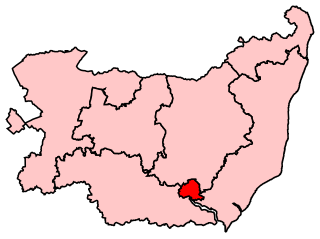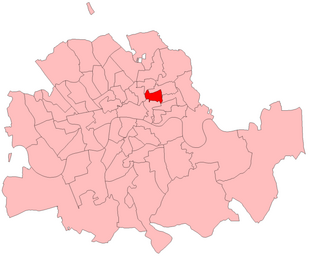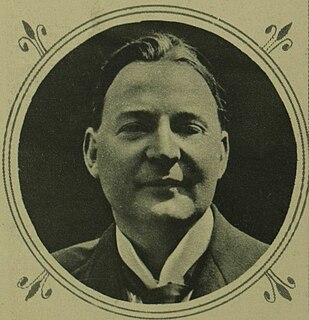
Bethnal Green and Bow /ˈbɛθnl̩ ɡɹiːn ənd bəʊ/, /ˈbeθ-/, /ˈbɛfnəw ɡɹiːn ən bəʊ/ is a constituency in Greater London represented in the House of Commons of the UK Parliament since 2010 by Rushanara Ali of the Labour Party.

Henry Graham White, known as Graham White was a radical British Liberal Party politician.
The Chesterfield by-election, 1913 was a by-election held for the British House of Commons constituency of Chesterfield in Derbyshire on 20 August 1913.

The North Cornwall by-election, 1932 was a parliamentary by-election held on 22 July 1932 for the British House of Commons constituency of North Cornwall.

Eugene Wason was a Scottish lawyer and Liberal politician who sat in the House of Commons in three periods between 1885 and 1918.

Samuel Forde Ridley was a British industrialist and Conservative Party politician.
The Kingston upon Hull Central by-election, 1919 was a parliamentary by-election held for the British House of Commons constituency of Kingston upon Hull Central on 29 March 1919. The by-election was the fifth to be held during the 1918-1922 parliament.
Walter Windsor was a British Labour Party politician. A native of Bethnal Green in the East End of London, he held a seat in the House of Commons from 1923–29, and from 1935–45, when he died.
Glasgow Tradeston constituency was created in 1885, and elected Liberal Archibald Corbett as their MP from then until he retired from the House of Commons in 1911 to take a seat in the House of Lords as 1st Baron Rowallan. Although Tradeston had consistently voted for Corbett, he did not consistently stand under the same label. In 1885 he stood as a Liberal against a Conservative. In 1886 following a split in the Liberal party he stood as a Liberal Unionist against a Liberal. Thereafter this was the normal contest until 1910. He had re-joined the Liberal party in 1908 but he did not win the official Liberal nomination in January 1910. This time standing as an Independent Liberal he scraped a victory against both Liberal and Conservative candidates. Then at the last general election, standing as the official Liberal candidate he won comfortably.
The West Ham North by-election was a Parliamentary by-election which was held in 1911. It returned one Member of Parliament to the House of Commons of the Parliament of the United Kingdom, elected by the first past the post voting system.
The Kilmarnock Burghs by-election was a Parliamentary by-election held on 26 September 1911. It returned one Member of Parliament to the House of Commons of the United Kingdom, elected by the first past the post voting system. The constituency consisted of five parliamentary burghs: Kilmarnock in the county of Ayr, Dumbarton in the county of Dumbarton, Rutherglen in the county of Lanark and Renfrew and Port Glasgow in the county of Renfrew.

The Poplar by-election was a Parliamentary by-election. It returned one Member of Parliament to the House of Commons of the United Kingdom, elected by the first past the post voting system.

The Ipswich by-election was a Parliamentary by-election. It returned one Member of Parliament to the House of Commons of the United Kingdom, elected by the first past the post voting system.

The Bethnal Green South West by-election was a Parliamentary by-election. It returned one Member of Parliament to the House of Commons of the United Kingdom, elected by the first past the post voting system.
The Combined English Universities by-election, 1937 was a parliamentary by-election for the British House of Commons dual member constituency of the Combined English Universities 22 March 1937.
The Harborough by-election was a Parliamentary by-election held on 23 March 1916. Harborough returned one Member of Parliament to the House of Commons of the United Kingdom, elected by the first past the post voting system. The by-election was due to the resignation of the Liberal MP, John William Logan. It was won by the Liberal candidate Percy Harris.
An election to the County Council of London took place on 7 April 1949. The council was elected by First Past the Post with each elector having three votes in the three-member seats. The Conservative Party made substantial gains, achieving the same number of seats as the Labour Party. However, Labour held the chair of the council, and was thus able to retain control.















